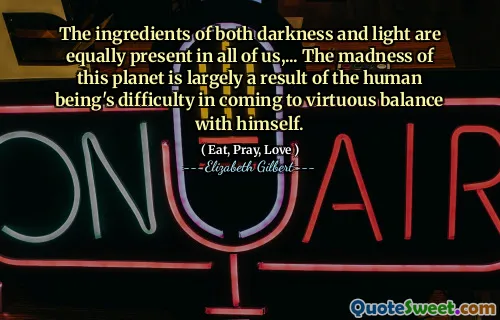
Saint Anthony once wrote about having gone into the desert on silent retreat and being assaulted by all manner of visions - devils and angels, both. He said, in his solitude, he sometimes encountered devils who looked like angels, and other times he found angels who looked like devils. When asked how he could tell the difference, the saint said that you can only tell which is which by the way you feel after the creature has left your company. If you are appalled, he said, then it was a devil who had visited you. If you feel lightened, it was an angel.
This passage offers a profound insight into the subtlety of discernment in spiritual and moral matters. The idea that angels and devils can look similar, even in appearances, underscores the complexity of human perception and the importance of internal feelings as the true indicators of one's experiences or influences. It reminds us that appearances can be deceiving; not everything that seems good is necessarily pure, nor is everything that appears tempting necessarily evil. Instead, the true test lies in the emotional aftermath of encounters or decisions—the sensations of relief, weight, or lightness serve as internal signposts directing us toward genuine goodness or deception. This teaching encourages a deep trust in our intuitive feelings, rather than solely relying on external appearances or logical reasoning. It also implies a continuous, perhaps even subtle, battle within—the challenge of distinguishing authentic guidance from illusion. In daily life, this can be related to discerning trustworthy relationships, genuine intentions, or even our own motivations. Recognizing the importance of internal feelings as indicators can help guide us toward authenticity and integrity. The quote ultimately speaks to the importance of inner discernment as a safeguard against deception, which remains as relevant today as it was in the times of saints and hermits. It highlights that our emotional and spiritual reactions often hold the key to understanding what aligns with our true selves and what misleads us into harm or false comfort.











